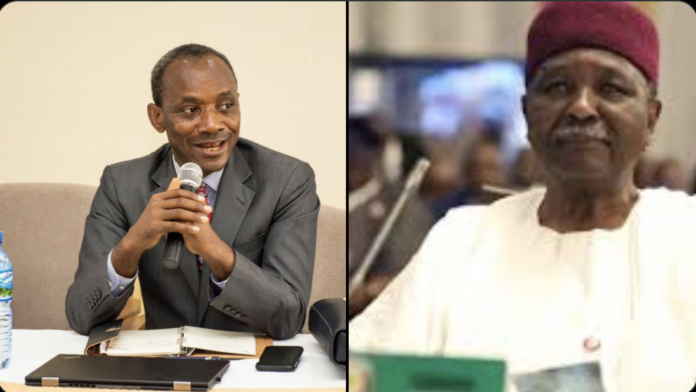The former Military Head of State, General Yakubu Gowon, could have prevented the Biafra civil war and the massacre of Igbos if he had acted more decisively.
This is the view of Sam Amadi, a prominent lawyer and the Director of the Abuja School of Social and Political Thoughts, who believes Gowon failed to take the necessary steps that could have stopped the conflict.
Amadi, in a post on X (formerly Twitter), expressed his disappointment at Gowon’s inaction during the turbulent period leading up to the Nigerian Civil War.
Amadi’s comments reflect a growing sentiment among some Nigerians who believe that the Biafran war could have been avoided if the government at the time had handled things differently.
The Nigerian Civil War, also known as the Biafra War, remains one of the darkest chapters in the country’s history.
Fought between 1967 and 1970, the war was triggered by the secession of the Eastern Region, dominated by the Igbo ethnic group, under the leadership of Colonel Odumegwu Ojukwu.
The Eastern Region had sought to break away from Nigeria following a series of violent attacks on Igbos living in the North, known as the 1966 pogroms, which left thousands dead.
Amadi, in his post, argued that Gowon’s failure to prosecute those responsible for the killings of Igbos in the North contributed to the calls for secession and ultimately led to war.
Amadi wrote, “The war came out of Nigeria’s faulty identity-based politics, which led to mass violence against Igbos.”
He pointed out that if Gowon and his fellow military leaders had acted in the interest of justice, the situation might have been different.
“If Gowon and his colleagues had acted decisively on behalf of the rule of law and openly prosecuted those who killed Igbos, there would have been no demand for secession and no war,” Amadi stated.
The Nigerian Civil War claimed the lives of over three million people, mostly civilians, and left the country deeply divided.
For many, the war was not just a battle between the federal government and the secessionist Biafra but a direct consequence of Nigeria’s failure to address deep-seated ethnic tensions and grievances.
Amadi’s comments reignite the debate over Gowon’s role in the war and whether more could have been done to prevent the conflict.
While some view Gowon as a leader who struggled to hold Nigeria together during a difficult time, others believe he bears significant responsibility for the events that led to the war.
Amadi’s post adds another layer to this debate, painting a picture of a leader who could have acted but chose not to.
“He was neither a great leader nor a grave villain,” Amadi continued. “He was a rookie stooge of grossly incompetent and hegemonic leadership that walked Nigeria into a stupid & avoidable civil war.”
The harsh criticism directed at Gowon reflects a growing frustration among some Nigerians who feel that the country’s leadership has repeatedly failed to address its underlying ethnic and political tensions.
For Amadi, the decision not to prosecute those responsible for the 1966 massacres of Igbos in the North was a major failure on Gowon’s part.
The violence, which erupted following a coup that led to the killing of several Northern military officers, resulted in widespread attacks on Igbos living in Northern Nigeria.
The failure to hold anyone accountable for these attacks, according to Amadi, was a turning point in Nigeria’s history.
“The killings of Igbos in the North created the conditions for the war,” Amadi explained.
He went on to describe Gowon as “responsible for genocide” but noted that he may not have intended for things to escalate the way they did.
“He’s RESPONSIBLE for GENOCIDE but did not WILL it,” Amadi stated.

